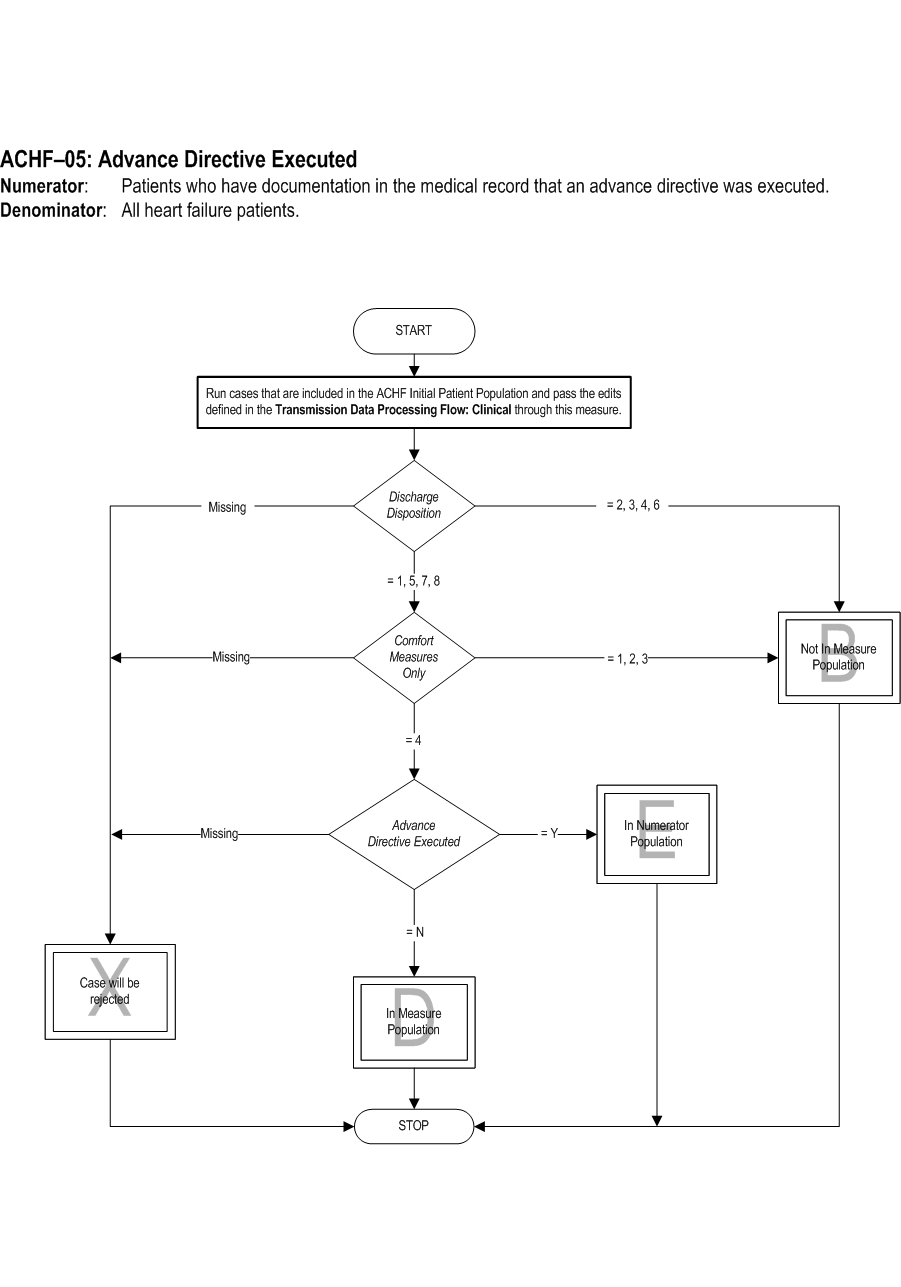Measure Information Form
Version 2018A
Measure Information Form
According to Heffner and Barbieri, most patients at fourteen cardiac rehabilitation programs across the United States, presumed the need for life-support at some point in the future and wanted to make their own decisions about end-of-life care. Most of the patients were aware of advance directives, desired more information, and preferred to get more information from their lawyers, families, physicians, or cardiac rehabilitation programs (Perkins, 2000). Despite this receptiveness, only 15% of patients had discussed advance directives with their physicians, and 10% had confidence that their physicians understood their wishes (Heffner and Barbieri, 2000).
Type of Measure: Process Improvement Noted As: Increase in the rateIncluded Populations: Not applicable Excluded Populations: None Data Elements:Denominator Statement: All heart failure patients.
Included Populations:Excluded Populations:
- Discharges with ICD-10-CM Principal Diagnosis Code for HF as defined in Appendix A, Table 2.1, and
- Patients who left against medical advice (AMA)
- Patients enrolled in a Clinical Trial
Data Elements:
- Patients who had a left ventricular assistive device (LVAD) or heart transplant procedure during hospital stay (ICD-10-PCS procedure code for LVAD and heart transplant as defined in Appendix A, Table 2.2)
- Patients less than 18 years of age
- Patients who have a Length of Stay Greater than 120 days
- Patients with Comfort Measures Only documented
- Patients discharged to another hospital
- Patients discharged to home for hospice care
- Patients discharged to a health care facility for hospice care
- Patients who expire
2. Hefner JE, Barberi C. End-of-life care preferences of patients enrolled in cardiovascular rehabilitation programs. Chest. 2000;117(5);1474-1481.
3. Kass-Bartelmes BL, Hughes R. Advance Care Planning Preferences for care at the end of life. J Pain Palliat Care Pharmacother. 2004;18(1):87-109. 4. Perkins HS. Time to move advance care planning beyond advance directives. Chest. 2000;117(5);128-1231.5. Wilkinson A. Living with Advanced Congestive Heart Failure: A Guide for Family Caregivers. The Washington Home Center for Palliative Care Studies (A Division of the RAND Corporation). Nov 2002.
6. Yancy CW, Jessup M, Bozkurt B, Butler J, Casey DE Jr, Drazner MH, Fonarow GC, Geraci SA, Horwich T, Januzzi JL, Johnson MR, Kasper EK, Levy WC, Masoudi FA, McBride PE, McMurray JJV, Mitchell JE, Peterson PN, Riegel B, Sam F, Stevenson LW, Tang WHW, Tsai EJ, Wilkoff BL. 2013 ACCF/AHA guideline for the management of heart failure: a report of the American College of Cardiology Foundation/American Heart Association Task Force on Practice Guidelines. Circulation. 2013;128:e240–e327.
Measure Algorithm: